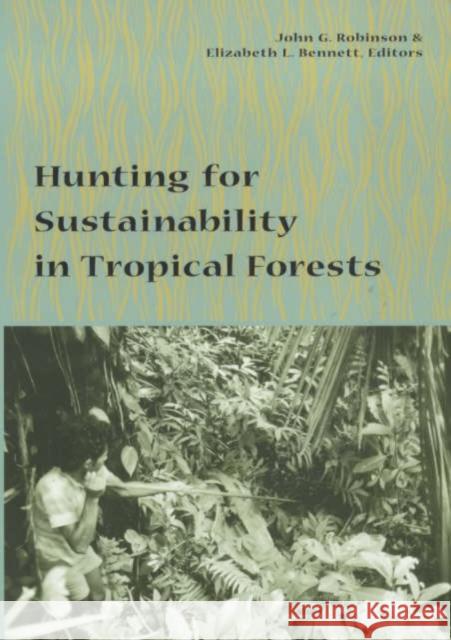Hunting for Sustainability in Tropical Forests » książka
Hunting for Sustainability in Tropical Forests
ISBN-13: 9780231109772 / Angielski / Miękka / 2000 / 1000 str.
Throughout the world people are concerned about the demise of tropical forests and their wildlife. Hunting by forest-dwelling people has a dramatic effect on wildlife in many tropical forests, frequently driving species to local extinction, with devastating implications for other species and the health of the forests themselves. But wildlife is an important source of protein and cash for rural peoples. Can hunting be managed to conserve biological communities while meeting human needs? Are hunting rates as practiced by tropical forest peoples sustainable? If not, what are the biological, social, and cultural implications of this failure? Answering these questions is ever more important as national and international agencies seek to integrate the development of local peoples with the conservation of tropical forest systems and species.
This book presents a wide array of studies that examine the sustainability of hunting as practiced by rural peoples. Comprising work by both biological and social scientists, Hunting for Sustainability in Tropical Forests provides a balanced viewpoint on the ecological and human aspects of this hunting. The first section examines the effects of hunting on wildlife in tropical forests throughout the world. The next section looks at the importance of hunting to local communities. The third section looks at institutional challenges of resource management, while the fourth draws on economic perspectives to understand both hunting and sustainability. A final section provides synthesis and summary of the factors that influence sustainability and the implications for management. Drawing on examples from Ecuador to Congo-Zaire to Sulawesi, Hunting for Sustainability in Tropical Forests will be a valuable resource to policymakers, conservation organizations, and students and scholars of biology, ecology, and anthropology.










